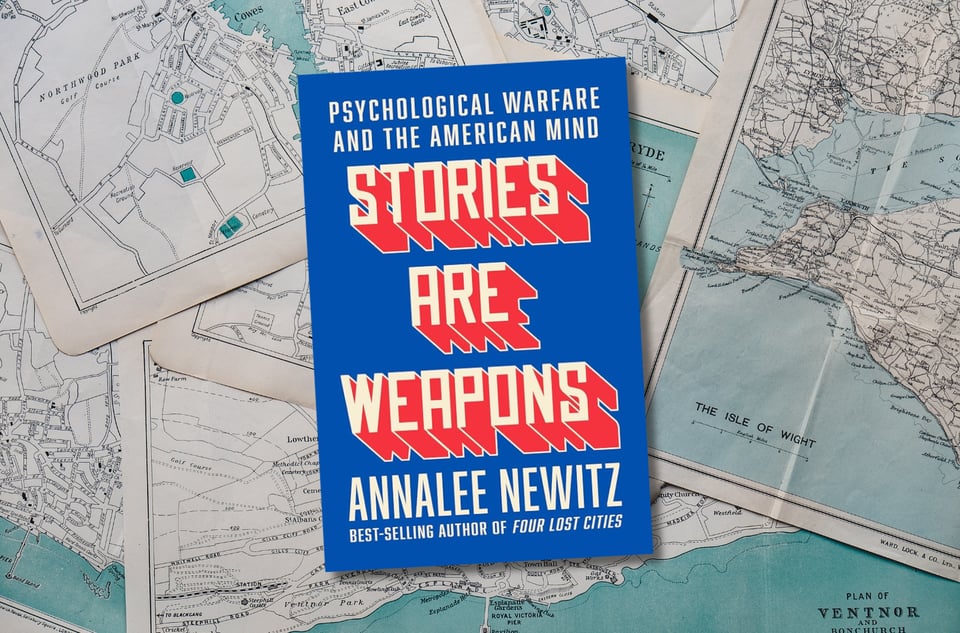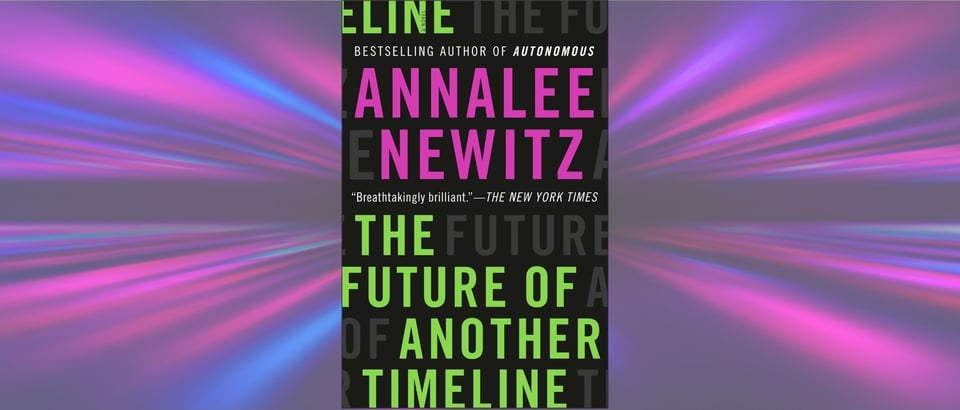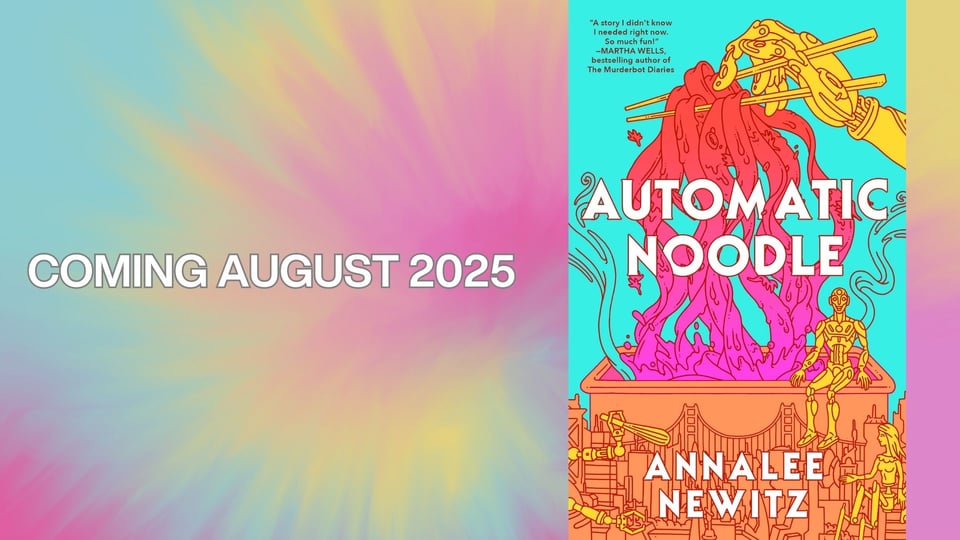There is a void at the core of our imaginations right now, and it is America’s future. It’s hard to know what will happen after Trump’s inauguration. Especially because the new regime’s goal is to keep us confused and unsure about what is really happening.
Weaponized confusion is a classic form of psychological warfare, deployed by militaries against foreign adversaries for centuries. It lowers morale, induces a sense of hopelessness, and makes decision-making nearly impossible. Increasingly, in the 21st century, governments are using it against their own people. In Russia, the tactic is called maskirovka (literally: camouflage); in America, Steve Bannon calls it “flooding the zone with shit.” You know the drill. Political leaders unleash a barrage of contradictory, often false messages, and we the people have no idea WTF is going on.
It’s hard to protest policies that you can’t even pin down.
This is something I thought about a lot over the past few years while I wrote Stories Are Weapons, a deep dive into the history of psychological warfare in America. What I learned is that there are many ways to resist modern propaganda: you can protect schools and libraries from censorship; keep careful records of the histories that authorities are trying to erase; and tell your own truthful stories about what is happening. (I talked in more depth about these strategies during a virtual lecture at Cary Library in Massachusetts.) But it is impossible to completely eradicate government disinformation campaigns.
Instead, we need to normalize the struggle against them.

Last year when I spoke at TED, I met Slava Balbek, a Ukrainian architect who now works part-time as a drone operator fighting the Russian invasion of his country. He told me that Ukrainians joke about “work/life/war balance,” trying to carve out a place in their lives for family and jobs while also fighting a war. His grim point was that ordinary life does go on, even if your city is bombed by foreign enemies, or your government starts rounding people up.
Part of normalizing the fight against disinformation means preparing yourself — in big and small ways — for the rise of an authoritarian government. If the U.S. goes fascist, you will start dealing with even more disturbing messages from the government. These might take the form of threats to your livelihood, or promises that you’ll be the victim of violence. You might have to watch what you say, or risk retribution from the police. Your ability to travel over borders could be limited or cut off completely. You may lose your job unless you comply with orders you know are morally wrong.
You may also risk your life to protest and fight for freedom.
But you will also eat meals with friends and family, if you can. You will keep working, if you can. You won’t become a completely different person. You will be the same old you, but your life will now include a whole list of tasks related to dealing with new levels of state-authorized control and violence.
We shouldn’t normalize fascism. But we should accept that part of our everyday lives will involve fighting it – for ourselves, as well as for our friends, neighbors, and allies, in the present and future.
Normalizing the resistance will also make it easier for us to survive these next few years. We don’t have to topple the regime in one fell swoop; we just have to do little bits of damage to it every day. Protest a book ban. Join a union. Teach a friend how to hide from surveillance cameras. Small actions matter, especially when all of us pitch in.
Let’s not pretend that civility will win the day. The near future is going to be traumatizing, and the propaganda will get much worse. As long as we stick together, though, you won’t have to face this flood of shit alone.
BOOK GIVEAWAY!

Do you need a dose of cozy hope, but also yearn to smash the many faces of the patriarchy? I’m giving you, dear reader, a chance to win one of 20 signed and personalized copies of my 2019 novel The Future of Another Timeline. It’s about time-traveling feminists who are roving through history, fighting for reproductive freedom and trans rights. Reply to this newsletter with your name and a request for the book, and I’ll send it to the first 20 responders! Sorry, I can only afford to send these within the United States.
Want to order one or five of my other books and get them personalized any way you like? They’re great holiday gifts, and they’re all available through my local indie bookstore Green Apple.
What I’m working on
I’m thrilled that Saga Press has just acquired an anthology I’m co-editing with Karen Lord and Malka Older. It’s called We Will Rise Again: Speculative Stories of Political Protest, Resistance, and Hope. We’ve got a ton of incredible contributors lined up, and the book will be out this time next year!
I’m also a member of the Freelance Solidarity Project and Authors Against Book Bans — check them out, and consider joining or donating!
And finally ~drumroll~ my next book is done! Want to know what happens when a group of forgotten bots take over an abandoned ghost kitchen to make the best hand-pulled noodles in San Francisco? Pre-order my next book, Automatic Noodle! Coming in August 2025.

My latest stuff
I published an op-ed in the Washington Post about how libraries could end the culture wars. Then I traveled to Washington, D.C., to speak about propaganda at the National Book Festival.
I’m still writing my monthly column for New Scientist, and you can now read them by creating a free account. Recent topics included my reluctant love for robo-taxis, the scourge of techno-Orientalism in science and science fiction, why the best livestream of the year featured a corpse flower blooming in (very slow) real time, and what everyone gets wrong about the Ashley Madison scandal.
And of course, you can always hear me shooting the breeze with Charlie Jane Anders and many amazing guests on our biweekly podcast Our Opinions Are Correct. Did you know we won the Hugo Award three times for this dang show? We did!
You just read issue #33 of The Hypothesis. You can also browse the full archives of this newsletter.